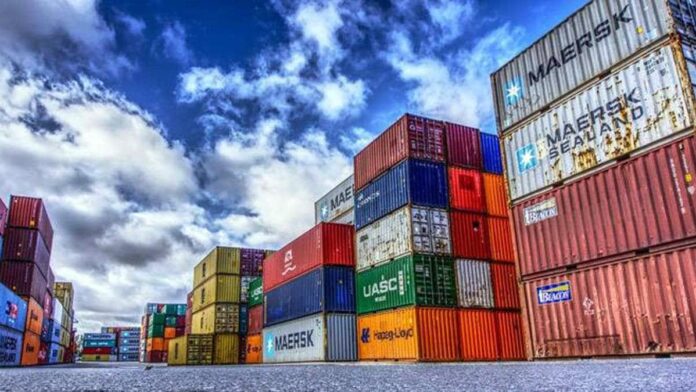Engro Polymer and Chemicals Ltd (EPCL), the sole producer of polyvinyl chloride (PVC) resin used in plastic and rubber manufacturing in the country, has encountered significant setbacks in constructing its hydrogen peroxide plant, worth $23 million. Speaking to journalists at the Bin Qasim factory, EPCL officials revealed that the project’s costs have surpassed initial estimates due to challenges in importing machinery amid restrictions on outgoing dollars.
EPCL was established in 1997. Mahmood Siddiqui, Vice President of Manufacturing of the Company, highlighted that “Since 2015, the Company has invested over USD 188 million in Plant expansion and other upgrade projects for higher efficiency, reliability, and diversification of operations. In 2021, EPCL enhanced its PVC capacity to 295,000 tons per annum, which is sufficient to fully cater to the local demand and achieve exports as well.”
Economic woes hinder company growth
EPCL’’s 2030 vision is to become a globally-competitive PVC producer, prioritising exports, and increasing the domestic per capita PVC consumption to international levels. As part of its business strategy, the Company is also looking to position PVC as the “Material of Choice” with a primary emphasis on value-added products.
But for the Company to enact its plans and maximise the potential of PVC exports while also meeting increasing local demand, it is equally imperative for the Government to ensure a conducive business environment with the availability of the right policies and necessary utilities.
Like other businesses and industries, EPCL is faced with challenges of restriction on Letter of Credit (LC) opening of plant’s critical raw materials, lack of gas availability needed for production, destruction of local demand due to volatile macroeconomic situation, and increase in the cost of financing.
EPCL’s integrated chlor-vinyl chemical complex currently generates hydrogen as a by-product during caustic manufacturing, utilizing it as a fuel for their power plant. However, the company aims to redirect the hydrogen towards hydrogen peroxide production—a crucial bleaching agent in the textile industry. Muhammad Idrees, the Chief Commercial Officer, stated that the anticipated plant is expected to commence commercial production next year. EPCL plans to supply its hydrogen peroxide to textile mills targeting foreign markets that prefer oxygen-based bleaches over chlorine-based alternatives. The primary obstacle hindering progress lies in import limitations caused by the foreign exchange crisis.“The main hurdle is the curb on imports due to the foreign exchange crisis,” he said. EPCL needs to import some spare parts to build the manufacturing facility.
EPCL’s initiatives to increase demand of PVC
Pakistan’s per capita PVC consumption currently stands at 1.2 kg versus a global average of 6.1 kg. Per capita consumption can grow by improving per capita income through increasing urbanization, and robust domestic manufacturing in the coming years. Through various customer engagement and market development initiatives, EPCL is actively promoting various standardised, high-quality PVC products.
Muhammad Idrees, Chief Commercial Officer at EPCL, said that “the Company is collaborating with TDAP to explore global markets for export of value-added PVC downstream products. In the last two years, the company exported surplus products worth $48 million to Turkiye and Middle Eastern markets, while import substitution of around $300 million contributed significantly toward solving Pakistan’s balance of payments situation. The downstream PVC industry can fully utilize its excess capacity and help in earning $300 million in valuable foreign exchange by standardizing and improving the quality of finished products.”
Mr Idrees said his company is working actively with downstream businesses, which are primary customers of EPCL, to nudge them towards producing value-added PVC products like flooring, doors, windows, tables, mock ceilings, bathroom vanities and outdoor chairs.
“We should try to export value-added PVC products instead of exporting resin. The export prices of value-added PVC goods are three to four times higher than that of resin,” he added.
Possible Import Substitution
Although two major chemical firms in the country produce hydrogen peroxide, Pakistan imports approximately 14,000 tonnes annually. The current market price for imported hydrogen peroxide ranges from $500 to $600 per tonne, resulting in an import bill of roughly $8.4 million per year. Once the EPCL plant is operational, Pakistan is poised to transform into a net exporter of hydrogen peroxide, boasting a production capacity of 28,000 tonnes.
As for PVC resin, EPCL intends to make substantial investments to enhance production efficiency. This strategic move presents Pakistan with a remarkable opportunity to generate up to $300 million in three to five years through the export of surplus volumes and value-added products.
The domestic PVC market demands approximately 240,000 tonnes annually, while EPCL’s production capacity reaches 295,000 tonnes per year. As a result, the majority of EPCL’s output is currently sold domestically. In 2022, less than 6% of the company’s net revenue, amounting to Rs 82 billion, originated from exports to European, Middle Eastern, and Afghan markets. EPCL generated $21 million in 2022 by exporting approximately 15,000 tonnes of its output.




